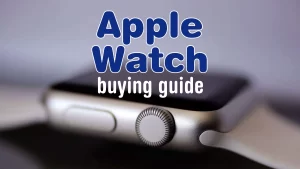How Apple learned to stop worrying and laugh at the Microsoft Zune

Apple released its quarterly results last week and tl;dr: numbers make my eyes glaze over, charts just make me want pie, it’s doing just fine. It occurs to the Macalope that younger readers may not remember the days when Apple was just one bad move from going out of business.
Oh, not the mid-1990s when it was actually one bad move from going out of business. No, the Macalope’s talking about the first decade and a half of this century when it was continually, laughably, and against all evidence argued that Apple, now the most valuable company in the world depending on which day you look, was said to be teetering on a precipice that only very clever online pontificators could identify.
Here in our Earth reality, however, once the iPod became a hit, Apple’s future was pretty secure. It was not guaranteed the success that it’s achieved since, but it was going to be fine. The iPod line was a viable company on its own, without the Mac, which continued to improve and drag itself out of the doldrums of the 1990s.
Yet, this thought persisted. Apple couldn’t be successful. That’s not how things worked.
When Microsoft announced the Zune (which you kids might know from a joke in a popular superhero movie) many pundits suggested it was game over for the iPod. After all, Microsoft had always beaten Apple before, right?
The Macalope is going to tell a story that he can’t back up because finding old things on the internet is broken so you’ll just have to take his word for it. But he distinctly recalls that some even suggested that Microsoft would just give users a new license to any existing music they might have in their library–e.g. iTunes–in order to grease the skids for the Zune revolution, covering any associated costs itself because Microsoft was just that powerful and cool and Apple just that weak and its parents dressed it funny.
Needless to say, this didn’t happen, whether for technical reasons or because Microsoft was not in the habit of giving things away for free. But what did happen was the Zune fizzled, the iPod won and Apple parlayed its success into the iPhone. The rest is history.
Actually, that’s also history. Assuming the “Microsoft will pay for your music” wasn’t a Macalope fever dream.
IDG
Despite the iPod’s unrivaled success, pundits still spent years predicting Apple’s doom. At least seven more years. To the Macalope’s recollection, the last person to really lean into Apple Doomerism–lean so far into it that he crashed right through it into the adjacent room like the Kool-Aid Man, startling the poor family who was living next door–was Trip Chowdhry. You remember Trip, right? AI is the thing everyone has to be in right now, but back in 2014, it was smartwatches. And before Apple introduced the Apple Watch, Chowdhry opined:
“They only have 60 days left to either come up with something or they will disappear,” Mr. Chowdhry told CNBC.
That was 10 years ago. Since then, this kind of… rhetoric? Is that the right word? Gibberish implies it’s unintelligible and that is clearly easy to understand, if just cosmically wrong. Flatulent is directionally correct, but too closely associated with its scatological meaning. Fatuous is pretty good.
So, how about “flatuous”? Pompous, silly, pointless and full of hot air.
You don’t see this kind of flatuous commentary about Apple much anymore. With good reason. Apple is obviously just a really big company now and it has been for years. It still makes some mistakes, but it’s certainly not going out of business any time soon.




